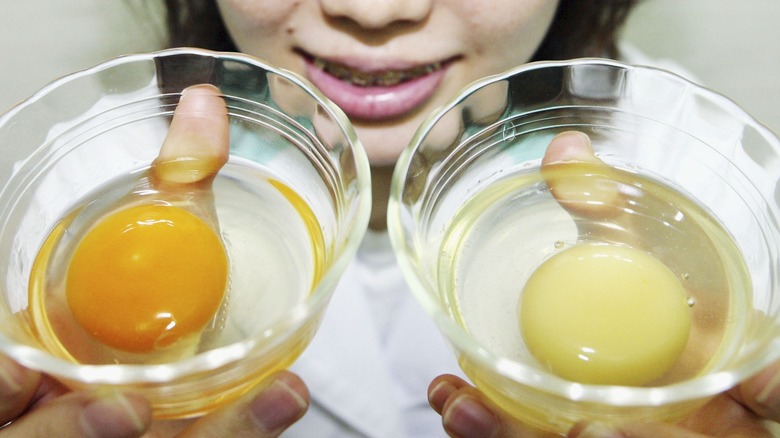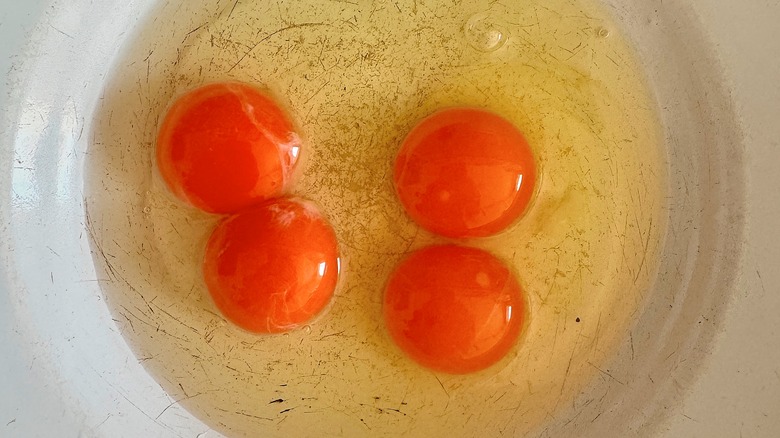Is It Safe To Eat Eggs With Clear Or White Yolks?
Buying a carton of eggs from the grocery store usually doesn't pack many surprises — other than the occasional price surge. However, if you went home and cracked open an egg to find its contents are clear or white instead of yellow, you might be a bit thrown off. As it turns out, you shouldn't judge a batch of eggs by its yolk color (or lack thereof). Although you might think you need to toss out the whole carton, clear-yolked eggs are actually perfectly safe to eat. (There are other ways, including smell, to tell if the eggs in your fridge have gone bad.) An egg's yolk color depends on the diet of the chicken that laid it in the first place.
Plants pigments called xanthophylls give the yolk its color. While the average hen is usually fed a diet of yellow corn, resulting in yellow yolks, eggs with white yolks may have come from a hen that's been fed white corn or another less pigmented feed like sorghum. This variation in yolk color has no impact on the nutritional value of the egg.
What different egg yolk colors mean
Now that you know clear and white egg yolks are safe to consume, you might be asking, "What about other colors and those unusual yolks Reddit is obsessed with?" Sometimes, egg yolks can come out dark orange, pale yellow, or even in doubles. Each of the aforementioned is also safe to eat. Interestingly, each color could mean something different in regard to the chicken's diet.
An orange yolk could come from a free range chicken with a diet that might be heavy in carotenoids, pigments that produce bright red, orange, and yellow hues in plants, fruits, and vegetables, resulting in a deeper tint. On the other hand, eggs with pale yellow yolks could come from hens that were fed a more wheat-based diet. Double-yolked eggs might simply be an indication of the age of the chicken that laid them. They can come from hens that haven't reached full maturity or from older chickens near the end of their egg-laying stage of life.

